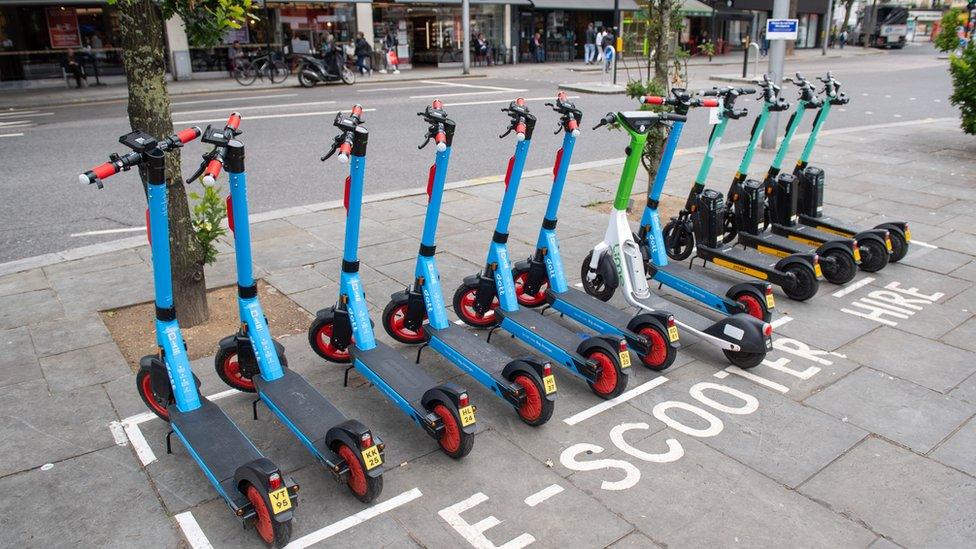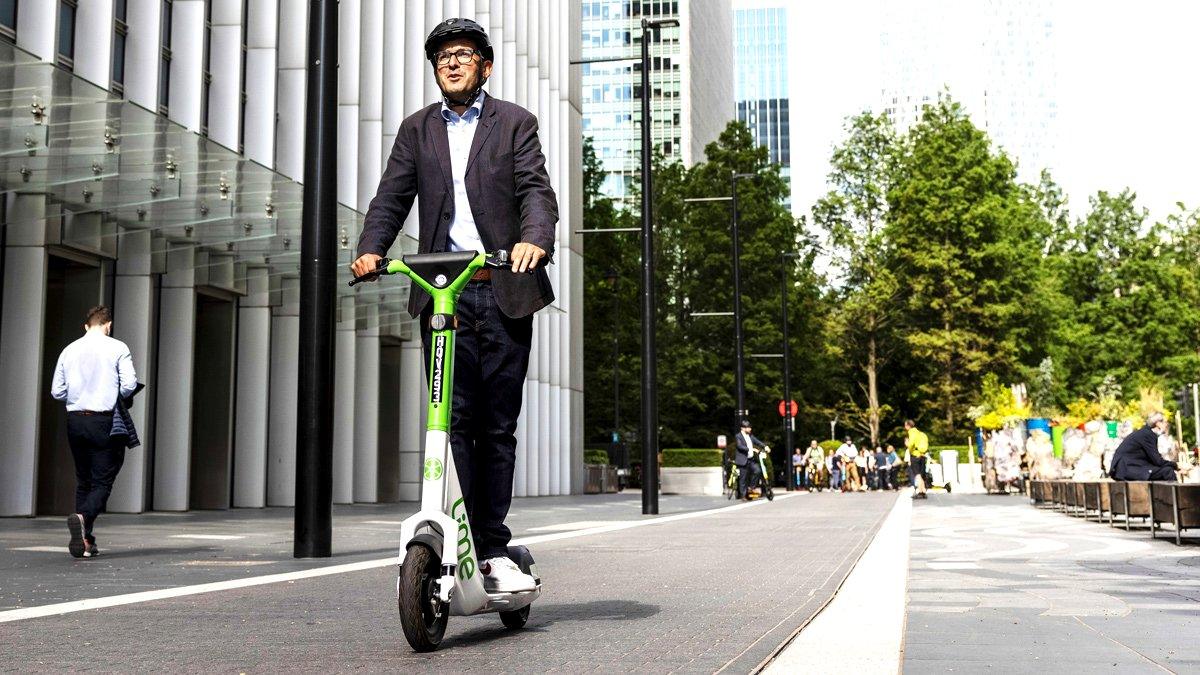E-scooter riders more likely than cyclists to sustain serious injuries
- Published

There have been official trials of e-scooter usage in several UK cities
E-scooter riders who are involved in accidents are more likely to sustain more serious injuries than cyclists, research has found.
Serious injuries in e-scooter users had a correlation with low helmet usage, age and riding while intoxicated.
E-scooter riders also sustained more severe head injuries, the study found.
Queen Mary University researchers wanted to see if there were differences in injury patterns and background factors between riders and cyclists.
They studied an audit of trauma care in England and Wales in 2021, published in the Injury Prevention journal.
In 2021, 293 e-scooter riders and 2,538 cyclists were admitted to hospital after a road accident.
While the overall number of significant injuries to cyclists was nearly nine times higher than it was for e-scooter riders, there are at least nine times more cyclists in the UK than there are riders, explained study author Christopher Aylwin.
E-scooter riders were also found to be more likely to be admitted to a critical care unit than cyclists, with 60% compared to 47%.
Injured riders were predominantly male in both groups, but injured e-scooter riders tended to be younger, with an average age of 35 compared with 50 for cyclists.
E-scooter riders were nearly four times more likely to be drunk or otherwise impaired - 26% compared with 7% - and less likely to have been wearing a helmet, with 7% compared with 47% for cyclists.
Comparatively, almost twice the number of e-scooter riders had severe head injuries, with 37 out of the 41 critical injuries among e-scooter riders being in that category.
My Aylwin pointed out that the study did not take into account injuries suffered by pedestrians or other road users, and only looked at patients admitted to hospital, meaning the true impact of e-scooter injury could be even greater.
He added: "These preliminary results indicate that use may result in a higher relative rate of hospital admission due to significant trauma than bicycles and, in particular, higher rates of severe head injury."

Follow BBC London on Facebook, external, Twitter , externaland Instagram, external. Send your story ideas to hellobbclondon@bbc.co.uk, external
- Published22 March 2022

- Published5 February 2020

- Published22 March 2022
